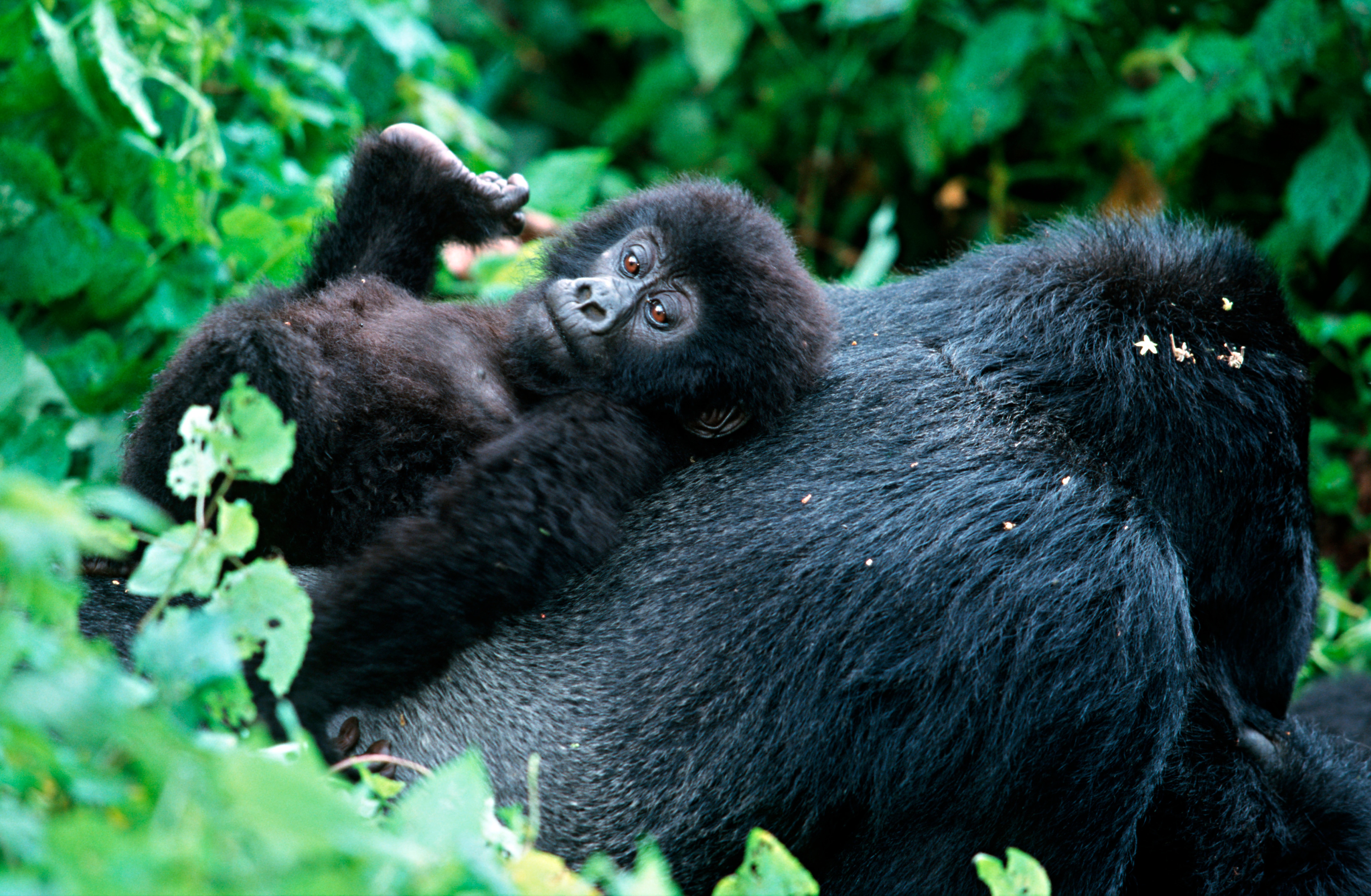Create a free profile to get unlimited access to exclusive videos, sweepstakes, and more!
When young gorillas are orphaned, the rest of the troupe apparently adopts them
For gorillas, it really does take a village.

King Kong is a classic tale of humans against nature which has been reimagined, retold, and remade countless times, even pitting the giant ape against other large creatures. At its core, however, it’s really a story about our misunderstanding of non-human animals and their capacity for emotion. When Kong first appears on screen, he’s presented as a raging monster, little more than an oversized threat to the human characters. By the time the credits roll, the audience knows his capacity for complex relationships, and he pays the ultimate price for our miscalculation.
Off screen, gorillas have also exhibited the capacity for complex social structures, intimate relationships, and altruism. Koko famously had social relationships with several humans and even had pets prior to her death in 2018. In 1996, Binti Jua, a Western lowland gorilla at Chicago’s Brookfield Zoo, saved a child who fell into her enclosure, carefully carrying him to the doorway for rescue by paramedics. These instances illustrate a capacity for altruism at least in gorillas who regularly interface with humans; but a recent study of gorillas in the wild strongly suggests that altruism is innate, not learned.
Scientists from the University of Exeter and the University of Southern Denmark looked at the behavior of wild gorillas in response to juveniles who lost one or both parents. They were particularly interested in the social and survival costs of being orphaned and what, if anything, the rest of the troupe does to mitigate those costs. Their findings were published in the journal eLife.
Losing one or both parents during early life is a devastating experience which has long-lasting consequences. Human societies endeavor to construct social safety nets to dull some of the more severe consequences and ensure continued safety and support into adulthood, at least when they’re operating correctly. In the wild, however, most animals aren’t so lucky. In many species, losing your mother before adulthood means losing protection and access to resources and, ultimately, death. Previous studies have shown that in social animals like primates and cetaceans, even if an orphan survives into adulthood, they often suffer social consequences leading to decreased reproduction and social status.
In gorillas, however, that doesn’t appear to be the case. Scientists were observing a group of silverback gorillas in the wild when the alpha male became sick. As a result, four females left the group in search of a new mate, and they didn’t take their children with them. It may have been a calculated risk as gorillas often kill infants from other groups to protect their own genetic integrity, and the mothers likely thought their children had a better shot where they were, even with a sick father. Scientists initially thought the infants, who were barely old enough to eat on their own, wouldn’t survive long without the support of their mothers, but it turns out they were wrong.
Rather than being left to fend for themselves, their uncle took them in. He let them sleep with him and took care of them. That got scientists wondering how common this kind of community altruism might be in gorillas. They looked at 53 years of data from the Gorilla Fund’s Karisoke Research Center in Rwanda and found that gorillas are surprisingly good about picking up the slack when young members of their community lose one or both parents.
A review of the data found that gorillas who lose their parents at an early age were no more likely to die than non-orphaned gorillas. Moreover, they don’t appear to lose any social status. By all measures, it appears that losing one or both parents has no long-term social, reproductive, or survival costs. By comparison, chimpanzees in the same situation lose social status and have fewer offspring than their peers.
That said, this behavior may not be specific to gorillas. There is some evidence that bonobos also adopt infants from outgroups when the need arises, and scientists are now looking to them and other species to see how wide-ranging social safety nets are in nature.
These findings further support the notion that altruism is not a specifically human behavior and may have evolved as a survival advantage before we broke away from our closest living relatives. Of course, it’s apparent lack in chimpanzees also suggests that social structure is a factor in how and if it is expressed.
Things might have gone different for Kong if he’d been viewed not as a monster, but as an orphaned gorilla — large as he may be — looking for a new family.


























